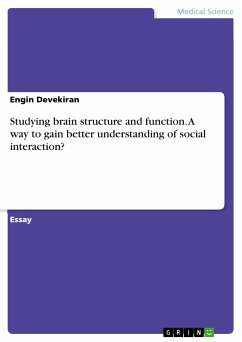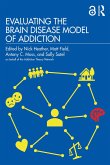Essay from the year 2016 in the subject Medicine - Neurology, Psychiatry, Addiction, grade: First Class honors, Trinity College Dublin (Department of Psychology), course: Social Neuroscience, language: English, abstract: Are we gaining a better understanding of social interaction through studying brain structure and function? In the following text the this question will be carefully enlightened from different perspectives. After a definition of the research area of social neuroscience, its most prominent method, the functional magnetic resonance imaging-method (fMRI) will be discussed. Subsequently, problems and stumbling blocks in neuroscientific argumentation will be addressed by analyzing two studies using the fMRI method. It will be outlined, why the overoptimistic evaluation of the explanatory potential of neuroscientific results and the relating arrogant attitude of some researchers, feeds the critics. In the next step, a selection of important findings of the last 16 years will be used to prove the importance of social neuroscience for a better understanding of social interaction. This will include examining the structures of the ‘social brain’. Eventually, there will be enough evidence collected to come to a profound evaluation of the claim in the title.
Bitte wählen Sie Ihr Anliegen aus.
Rechnungen
Retourenschein anfordern
Bestellstatus
Storno









